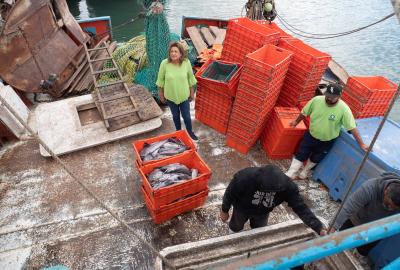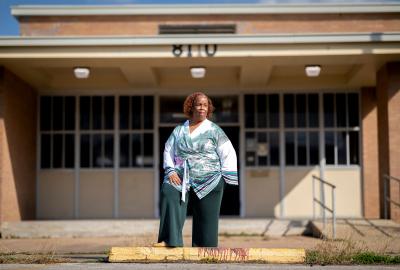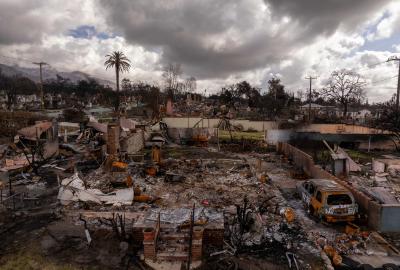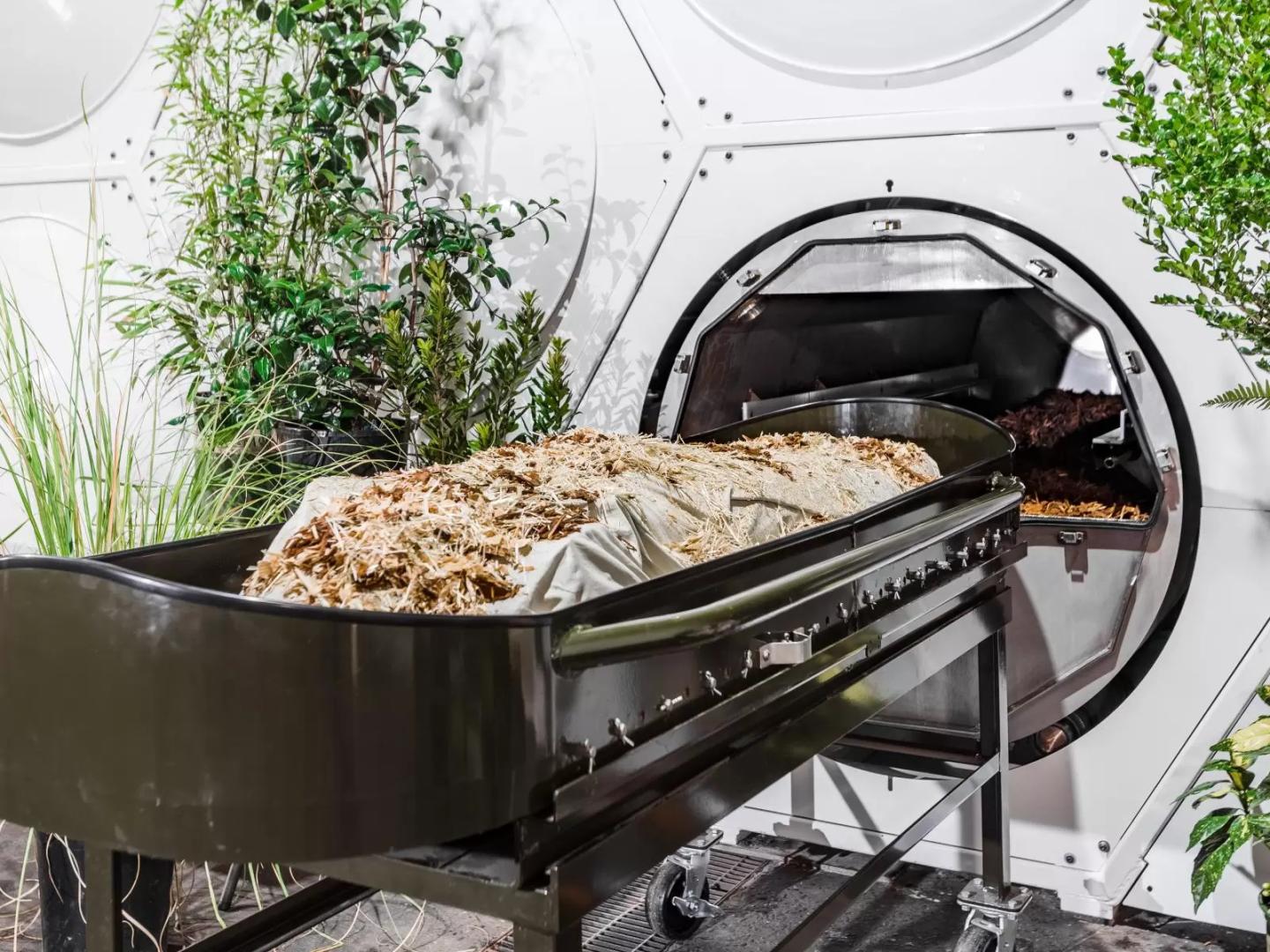
Meet the new, environmentally friendly alternative to burial or cremation: human composting
Like many people, Adrienne Highley and Mia Pinto have put their affairs in order for when they die. But Highley and Pinto differ from many end-of-life planners.
While most people do not start even considering their funeral plans until they are in their 50s, Highley and Pinto are both under 35. And their plans for death are part of a small but growing new trend, especially among young people, of rejecting cremation or burial in favor of human composting.

“Knowing that my body is going to be useful in some way is amazing to me,” says Highley, 32.
The process of human composting is relatively new in the U.S. Only Washington, Oregon and Colorado offer human composting currently. California, where Highley lives, passed a law legalizing the process in September, but the law does not take effect until 2027. Vermont’s law came into force on Jan. 1. And New York’s governor just signed a law legalizing the process, although the regulatory framework is not in place yet.
There are only four companies, located across the three states where human composting is fully legal, that currently offer the service. But it's catching on. At Recompose, the first funeral home in the world to offer human composting, more than 1,000 people have already bought into a prepayment plan to have their remains composted when they die.
“This is a movement created by people who are not satisfied by the current funeral industry options,” said Katrina Spade, CEO and founder of Recompose. Spade was also the architect of human composting, ushering the concept from a thought experiment in grad school to the law passing in Washington state.
For the roughly 550 bodies that have been composted in the U.S, so far, the process itself is pretty straightforward: A body is enveloped in plant material and placed in an 8-foot by 4-foot stainless steel cylinder. Recompose uses a blend of wood chips, alfalfa and straw to balance the carbon and nitrogen released from the human body as it breaks down.
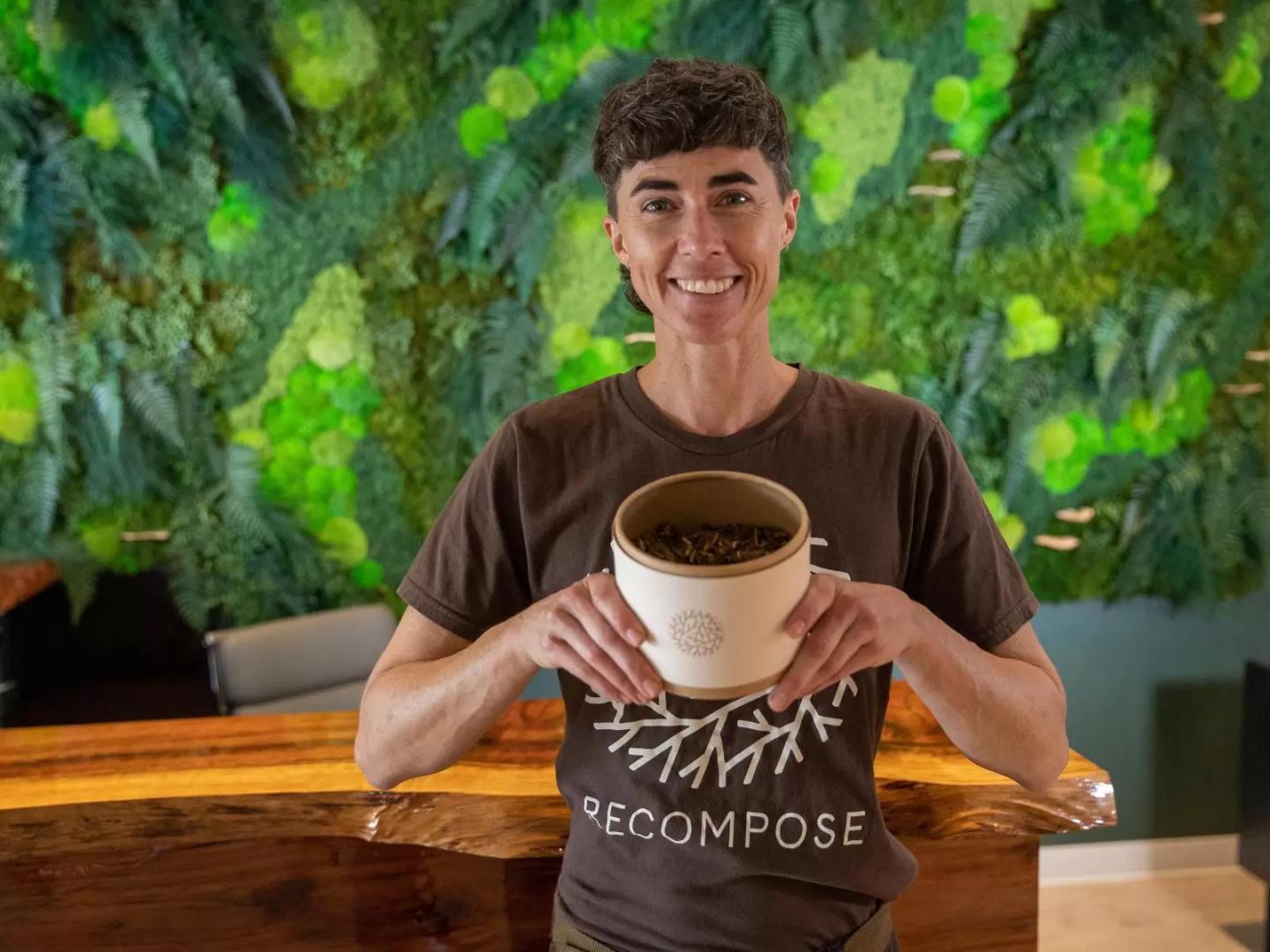
Inside the cylinder, the plant material reaches temperatures above 150°F (66°C) entirely via microbial activity, and the body breaks down in about a month. The result? About a cubic yard of fertile topsoil, enough to fill the bed of a pickup truck.
Highley has plans for her remains to help grow a new garden on her family’s farm in Indiana.
“I will be able to be close to my family and give back to the earth at the same time and hopefully be something pretty to look at,” she says.
Highley signed up for Precompose, the prepayment plan at Recompose. Spade told EDF that a quarter of the Precompose clients are under 40.
“We have Precompose members signing up way in advance of needing a funeral service,” Spade says. “It feels important to them to make a stand, to choose now to align their deathcare choice with the way they’ve lived their life and the way they see the planet’s crisis.”
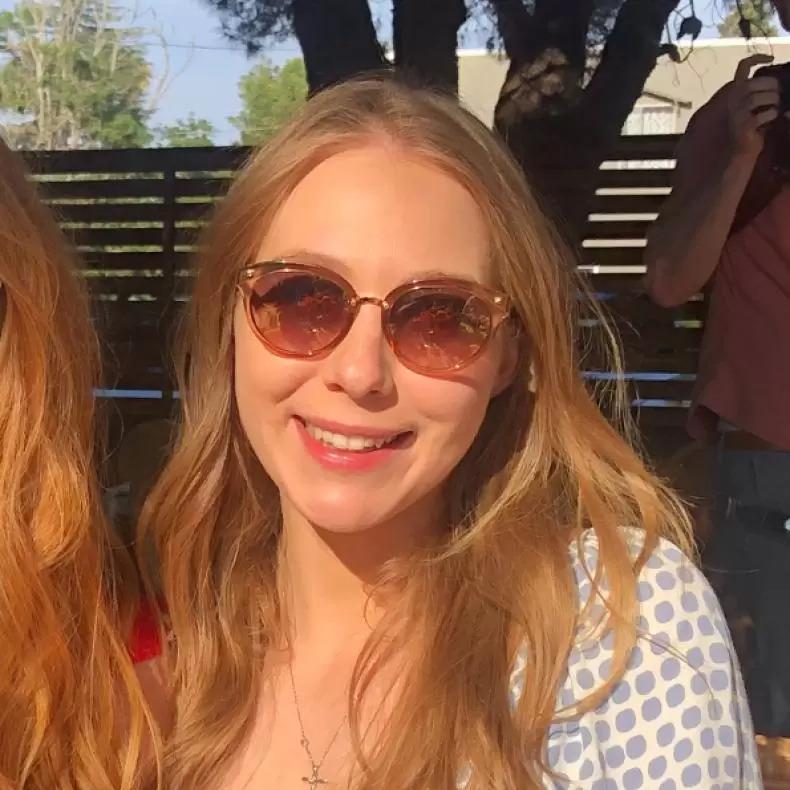
Pinto, 28, signed up for Precompose because it not only fulfills a belief that she can return to the Earth, but also because of the environmental implications of conventional burials and cremations that she believes her generation can correct.
“We want to save the Earth, as cheesy as that sounds, for generations to come,” Pinto said.
Cremation burns roughly 28 gallons of natural gas per body, releasing around 360,000 metric tons of carbon dioxide in the U.S. per year. While conventional burials don’t involve fuel for burning bodies, the construction and transportation of headstones, caskets and concrete grave liners, along with the upkeep of the cemetery, releases roughly the same amount of CO2 as cremations.
Human composting reduces the carbon footprint of a single death by one metric ton of carbon dioxide according to Dr. Troy Huttle, director of circularity at Biomason, an eco-friendly construction company.
With climate anxiety among young people at an all time high, Pinto sees human composting as a unique opportunity to help.
“People of my generation … do see the detrimental impacts that humanity has had,” Pinto says. “We want to leave the Earth better than we found it.”
The idea for Recompose came to Spade as an architecture graduate student after she learned about the process farmers had been using to decompose livestock for decades.
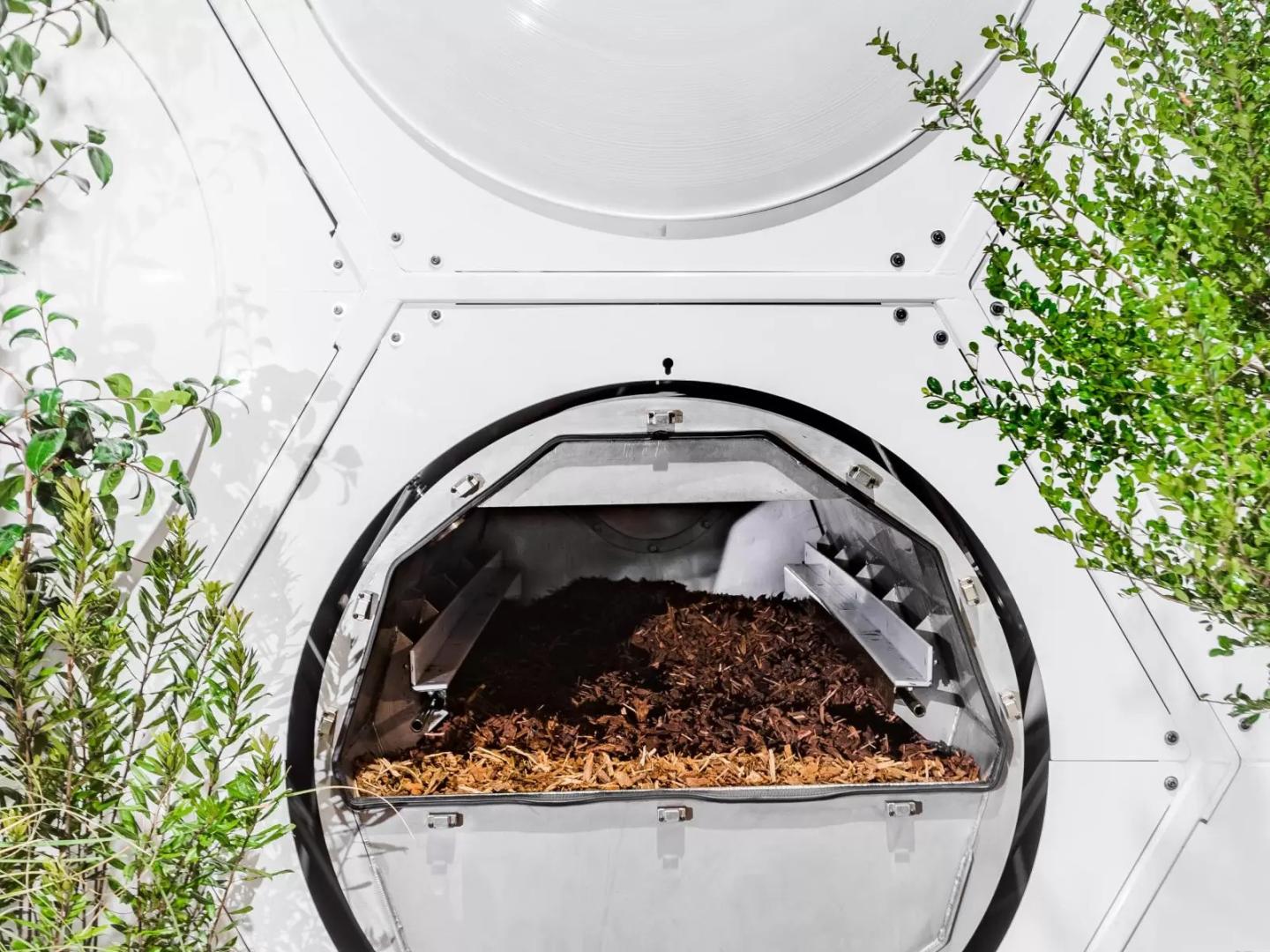
In the states that have legalized human composting, it's received bipartisan support. In Washington state, which was the first, nearly all Democrats and almost two-thirds of Republicans voted in favor. The more progressive legislators from Seattle supported the environmental benefits, and the more conservative legislators from eastern Washington had the support of their farming constituents.
“Farmers very well know the importance of building the soil, and of the land, but also that livestock composting is, if not beautiful, just a really practical thing to do,” Spade says.
The main objection to human composting comes from the Catholic Church, which sees the process as not paying enough respect to human bodies after death.
“My dream is to have human composting become the default for the U.S.,” Spade says, adding that she encourages people to contact their state legislators and advocate for the legalization of human composting across the country.
